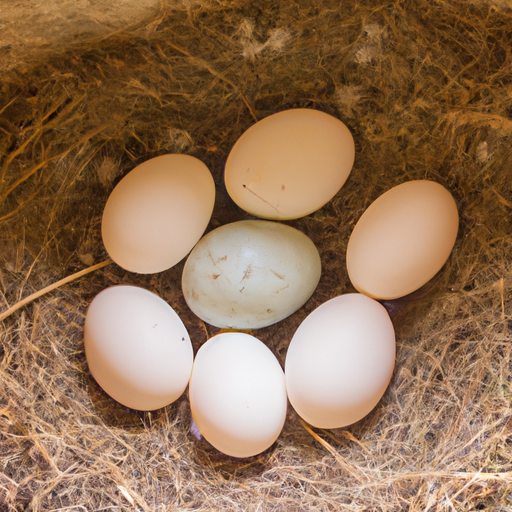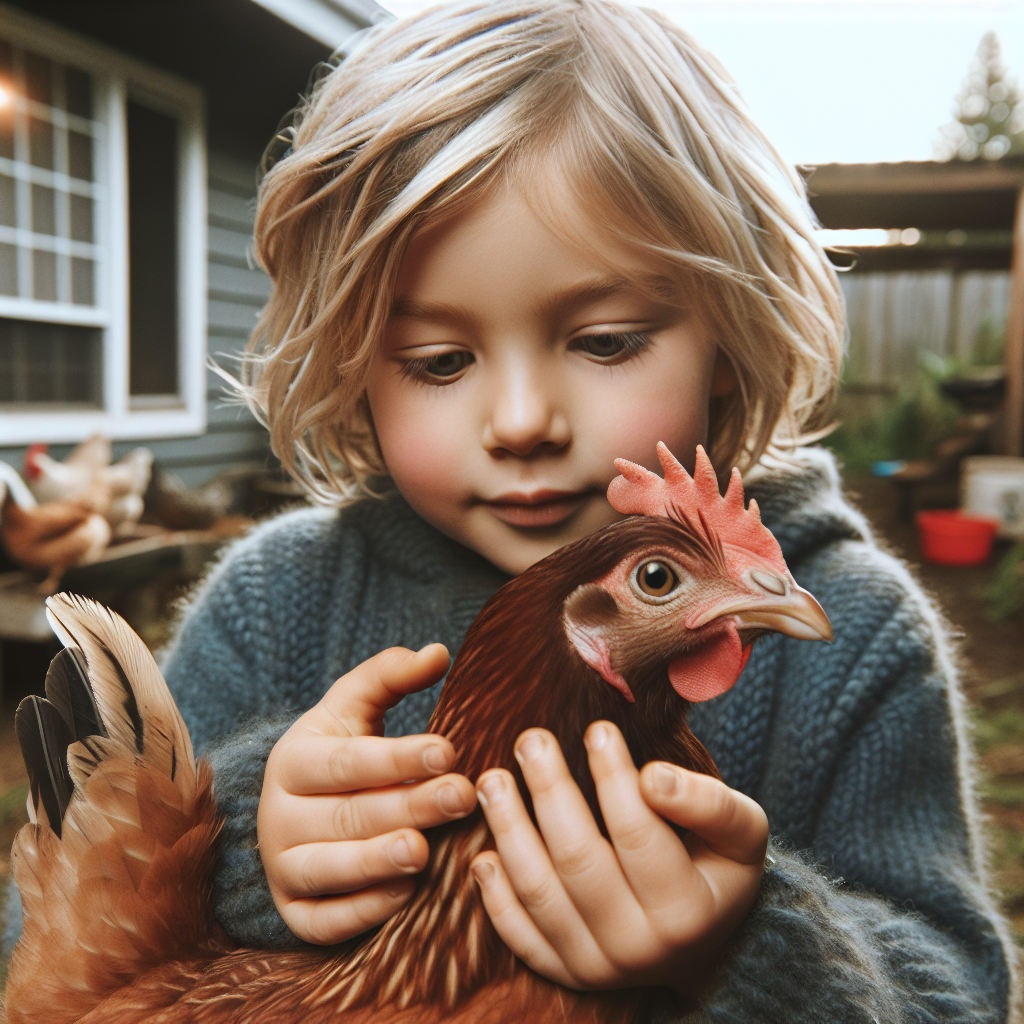Living in a close-knit community, it’s important to maintain positive relationships with our neighbors. If you’ve recently taken up the hobby of raising backyard poultry, you may be wondering how to ensure that your feathered friends don’t become a source of annoyance for those living nearby. While it’s natural for chickens to make noise or produce odors, there are various steps you can take to mitigate any potential disturbances and maintain harmony with your neighbors. By implementing these simple strategies, you can enjoy the joys of backyard poultry while also being considerate to those around you.
1. Understanding Local Regulations
When it comes to keeping backyard poultry, it’s crucial to understand and abide by the local regulations. This will not only ensure that you are in compliance with the law but also help maintain a harmonious relationship with your neighbors. Here are a few key areas to consider:
1.1 Check Local Zoning Laws
Start by checking the local zoning laws in your area to determine if keeping backyard poultry is allowed. Different municipalities may have specific regulations regarding the minimum lot size, setback requirements, and the number of birds allowed per property. By familiarizing yourself with these regulations, you can avoid any potential legal issues and conflicts with your neighbors.
1.2 Familiarize Yourself with Noise Regulations
In addition to zoning laws, noise regulations are another important aspect to consider. Most neighborhoods have noise ordinances in place to protect residents from excessive noise disturbances. Before bringing in backyard poultry, it’s essential to understand the local noise regulations and ensure that your poultry activities are within the acceptable limits. This will help you maintain a peaceful coexistence with your neighbors.
2. Maintain a Clean Environment
Maintaining a clean environment is not only important for the health and well-being of your poultry but also for the overall aesthetics and odor control of your backyard. Here are a few steps you can take to ensure a clean coop:
2.1 Regularly Clean the Coop
Regularly cleaning the coop is crucial for maintaining a healthy environment for your birds. This involves removing droppings, replacing soiled bedding, and cleaning the coop surfaces. Accumulated waste can not only lead to unpleasant odors but also attract pests and rodents. By establishing a routine cleaning schedule, you can keep your coop clean and minimize any potential disturbances caused by foul odors.
2.2 Properly Dispose of Waste
Proper waste disposal is essential to prevent any foul odors or pest infestations. Many municipalities have specific guidelines for waste disposal, including poultry waste. Make sure to familiarize yourself with these guidelines and follow them diligently. Consider composting the poultry waste if it is permitted in your area, as it can be a valuable nutrient-rich addition for your garden. By properly disposing of waste, you can minimize any potential nuisances that may affect your neighbors.
2.3 Minimize Odor
One of the common concerns when it comes to backyard poultry is the odor they may produce. While it’s natural for chickens to have an odor, proper management can help minimize it. Along with regular cleaning and waste disposal, you can use odor-absorbing materials, such as clean straw or wood shavings, in the coop. Additionally, good ventilation will help disperse any odors and maintain a fresh environment. By taking precautions to minimize odor, you can ensure that your neighbors are not unnecessarily bothered by any unpleasant smells.
3. Manage Noise Levels
Noise is often a significant concern for neighbors when it comes to backyard poultry activities. While chickens can be noisy at times, there are strategies you can employ to manage and minimize the noise levels. Here are a few tips to consider:
3.1 Choose Quiet Breeds
When selecting poultry breeds, opt for those known to be quieter. Some breeds, such as Silkies or Cochins, tend to be less vocal compared to others. Research different breeds and choose ones that are known to have a calmer demeanor and produce less noise. By deliberately selecting quieter breeds, you can avoid unnecessary disturbances to your neighbors.
3.2 Provide Sufficient Entertainment
Boredom can often lead to increased noise levels in poultry. To keep your birds entertained and occupied, make sure to provide them with sufficient entertainment options. This can include toys, perches, and even access to natural foraging areas. By stimulating their minds and bodies, you can help prevent excessive noise caused by boredom.
3.3 Consider Soundproofing Measures
If noise continues to be a concern despite your efforts to manage it, consider implementing soundproofing measures in and around the coop. This can involve adding insulation to the coop walls or utilizing sound-absorbing panels. Additionally, planting vegetation around the coop can act as a natural sound barrier. By taking these extra steps, you can greatly reduce the noise levels that may otherwise disturb your neighbors.
4. Limit Rooster Presence
Roosters are known for their loud crowing, which can be a major source of noise disturbance for neighbors. If you’re considering keeping roosters, it’s crucial to be mindful of the local regulations and take measures to minimize any potential disruptions. Here are a few steps to consider:
4.1 Know the Local Rooster Regulations
Before bringing in a rooster, familiarize yourself with the local rooster regulations. Some areas may have restrictions on keeping roosters due to noise concerns. If allowable, make sure to comply with any specific requirements, such as distance limitations or time restrictions on crowing.
4.2 Locate Rooster Away from Neighbors
To minimize noise impact, place the rooster’s coop as far away from neighboring properties as possible. This will help reduce the direct sound transmission to your neighbors’ homes. Additionally, consider positioning the coop away from bedrooms or areas where people spend a significant amount of time.
4.3 Consider Neutering Rooster
If allowed in your area, considering neutering the rooster can significantly reduce or eliminate crowing altogether. However, it’s essential to consult with a professional veterinarian before making this decision. Neutering can significantly alter the rooster’s behavior, so it’s crucial to understand the potential implications before proceeding.
5. Communicate with Neighbors
Maintaining open lines of communication with your neighbors is key to avoiding conflicts and addressing any concerns promptly. Here are a few steps to foster positive communication:
5.1 Inform Neighbors in Advance
Before starting your backyard poultry activities, consider informing your neighbors in advance. This will give them an opportunity to raise any concerns they may have and provide you with a chance to address them proactively. Sharing your plans and intentions openly can help establish trust and demonstrate your commitment to being a considerate neighbor.
5.2 Address Concerns Promptly
If your neighbors express any concerns or complaints related to your poultry activities, take them seriously and address them promptly. Listen attentively to their concerns and explore potential solutions together. By being responsive and proactive, you can work together to find compromises that ensure the comfort and well-being of both your poultry and your neighbors.
5.3 Offer Benefits of Backyard Poultry
Educate your neighbors about the benefits of backyard poultry. Share the advantages of fresh eggs, organic pest control, and the joy of connecting with nature. By highlighting the positive aspects, you can help foster a greater understanding and appreciation of your backyard poultry activities.
6. Control Pests and Rodents
Pests and rodents can be a nuisance not only to you but also to your neighbors. Implementing proper pest control measures and securing the coop can help prevent infestations and alleviate any concerns. Here’s what you can do:
6.1 Implement Proper Pest Control Measures
Regularly inspect your coop and surrounding areas for signs of pests, such as mites or rats. If infestations are detected, take immediate action to address the issue. This may involve using safe and approved pest control methods or consulting with professionals who are experienced in poultry pest management.
6.2 Secure the Coop to Prevent Rodent Infestations
Rodents are attracted to poultry feed and can become a significant problem if not managed properly. Ensure that your coop is secure and fortified against rodents. This includes sealing any gaps or openings, using rodent-proof materials, and keeping feed stored in tightly sealed containers. By implementing effective rodent prevention strategies, you can minimize the risk of infestations and potential disturbances to your neighbors.
7. Install Visual Buffers
Visual buffers can help create a sense of privacy and separation between your backyard poultry activities and neighboring properties. Here are a couple of options to consider:
7.1 Planting Vegetation as a Barrier
Consider planting trees, bushes, or shrubs around your property to act as a barrier between your coop and your neighbors’ homes. This greenery not only adds beauty to your surroundings but also helps block views and absorb sound. Choose plants that are suitable for your climate and that offer year-round coverage for maximum effectiveness.
7.2 Install Fencing or Privacy Screens
Fencing or privacy screens can also be effective in creating visual buffers. Install a solid fence or privacy screen around your coop area to provide privacy both for you and your neighbors. This added physical barrier can help alleviate any concerns about the appearance or proximity of your backyard poultry activities.
8. Implement Coop Design Strategies
The design of your coop can play a significant role in minimizing disturbances and ensuring the comfort of your neighbors. Consider these strategies when planning your coop:
8.1 Choose an Appropriate Coop Size
Ensure that your coop is appropriately sized based on the number of birds you plan to keep. Overcrowding can contribute to stress, noise, and odor issues. By providing sufficient space for your poultry, you can help maintain a comfortable and healthy environment for them and minimize potential nuisances to your neighbors.
8.2 Opt for Adequate Ventilation
Proper ventilation in the coop is crucial for maintaining fresh air and preventing the buildup of unpleasant odors. Ensure that your coop has adequate ventilation openings or vents to facilitate airflow. This will help remove moisture, reduce odors, and maintain good air quality for the birds. However, it’s important to strike a balance to prevent drafts or excessive wind inside the coop.
8.3 Position Coop Strategically
When deciding on the location of your coop, take into account the proximity to neighboring properties. Consider locating the coop away from property lines or areas where it may be more likely to disturb your neighbors. Pay attention to prevailing wind directions to minimize the potential spread of odors in their direction. Strategic positioning of the coop can help maintain a peaceful coexistence with your neighbors.
9. Be a Responsible Poultry Owner
Being a responsible poultry owner goes beyond complying with regulations and mitigating disturbances. Proper care and attention to your birds’ needs are essential for their health and well-being. Here are a few key areas to focus on:
9.1 Provide Proper Care and Nutrition
Ensure that your poultry have access to clean water and a balanced diet suitable for their specific needs. Regularly inspect their health, monitor their behavior, and promptly address any signs of illness or distress. By providing proper care and nutrition, you can maintain healthy and content birds, which are less likely to cause disruptions.
9.2 Monitor Poultry’s Health
Regularly monitor the health of your birds and seek veterinary care when necessary. Promptly address any disease outbreaks or health issues to prevent the spread of infections to neighboring flocks. By maintaining a healthy and disease-free flock, you can mitigate any potential concerns your neighbors may have regarding the health risks associated with poultry activities.
9.3 Address Behavioral Issues
In addition to physical health, it’s essential to address any behavioral issues exhibited by your birds promptly. Aggressive or excessively noisy behavior can be disruptive and cause stress for both the birds and your neighbors. Seek advice from experts or poultry consultants on how to manage these behaviors and implement appropriate training techniques.
10. Seek Professional Advice
If you’re unsure about any aspect of backyard poultry keeping or need further guidance, it’s always beneficial to seek professional advice. Here are a couple of avenues to consider:
10.1 Consult Local Agricultural Extension Services
Local agricultural extension services are valuable resources that can provide expert advice and support. They can offer guidance on local regulations, best management practices, and answer specific questions you may have regarding backyard poultry keeping. Take advantage of their knowledge and expertise to ensure that you are following the best practices and minimizing any disturbances to your neighbors.
10.2 Hire a Professional Poultry Consultant
If you want comprehensive assistance and guidance tailored specifically to your backyard poultry setup, consider hiring a professional poultry consultant. These experts can assess your current practices, identify areas for improvement, and provide customized solutions. They will have a deep understanding of the challenges associated with backyard poultry keeping and can help you navigate through any concerns or complications that may arise.
Ensuring that your neighbors are not disturbed by your backyard poultry activities requires a combination of proactive measures and open communication. By understanding and adhering to local regulations, maintaining a clean environment, managing noise levels, and addressing any concerns promptly, you can create a harmonious living environment for both your poultry and your neighbors. Remember to be a responsible poultry owner, seek professional advice when needed, and foster positive relationships with those around you. With these considerations in mind, you can enjoy the benefits of keeping backyard poultry while minimizing any potential disturbances to your neighbors.




